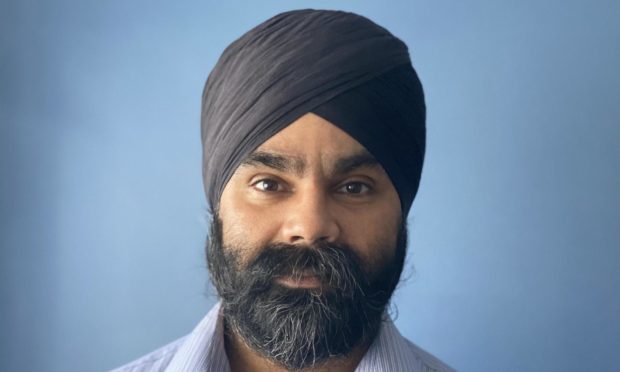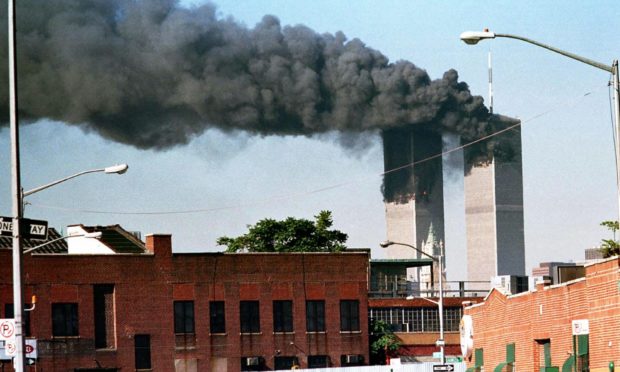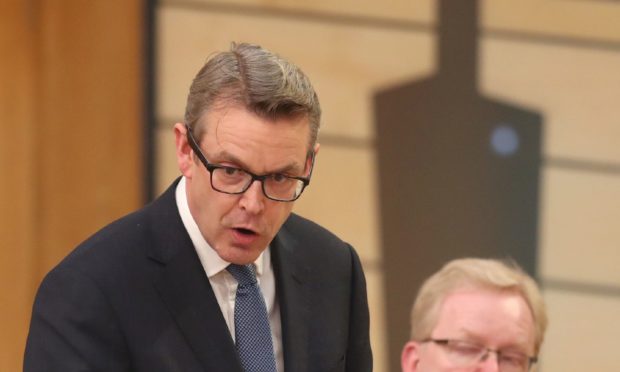It’s an understatement to say the Scottish Hate Crime Bill has been the subject of significant controversy.
Tomorrow MSPs will debate it one last time before it goes to a final vote. They must put free speech before party politics.
As it stands, the Bill presents some very serious implications for the right of free speech in Scotland – and there’s little doubt that if it is enacted, it will make Scotland one of the most hostile places for freedom of expression in Europe.
That’s not a reputation Scotland deserves and I’m not convinced using the law to tackle ‘hate’ is the best way to address prejudice in wider society in the first place.
The world after 9/11
I say this as a Sikh and being part of a community that has faced a significant backlash since 9/11, because we are often confused with Islamic extremists – like Bin Laden, the Taliban, or Isis.
In 2015 a gurdwara (Sikh temple) in Glasgow was vandalised with anti-Islam graffiti and a Nazi Swastika, and in 2018 there was an arson attack on a gurdwara in Edinburgh.
Improving levels of religious literacy and replacing bad ideas with good ideas through open and healthy debate is a critical part of the solution to this problem – and this all requires more free speech, not less.
Many different groups have expressed concerns about freedom of expression when it comes to the new crime of ‘stirring up hatred’ over the passage of this bill – be it lawyers, police, comedians, journalists, faith groups, secularists, feminists and many more.
Freedom only to speak inoffensively is not worth having.”
Lord Justice Sedley
One of the upshots of all this is that groups who would otherwise be unlikely bedfellows have joined forces in opposition – like the Catholic Church, the Free Church of Scotland, The Network of Sikh Organisations, the Humanists Society, the National Secular Society, Index on Censorship, the Peter Tatchell Foundation and Scottish Pen.
When it comes to free speech, I often think of Lord Justice Sedley, who famously said: “Free speech includes not only the inoffensive but the irritating, the contentious, the eccentric, the heretical, the unwelcome and the provocative provided it does not tend to provoke violence. Freedom only to speak inoffensively is not worth having.”
If the Scottish government vote to enact this legislation it will fly in the face of the spirit of these seminal words.
To make matters worse with this Bill, conversations you have in the privacy of your home with your loved ones aren’t out of bounds, either, as there is no dwelling defence, which does, however, exist in parallel legislation in England and Wales. Why should Scots be treated any differently?
There’s a danger that certain debates, in which people hold very strong opinions on either side of the ideological divide, could result in a police investigation and put officers themselves in the undesirable position of having to decide whether social media posts on Twitter or Facebook fall within the bounds of free speech or whether they meet a criminal threshold.
Only a few weeks ago, the Scottish Police Federation wrote to Adam Tomkins MSP, convener of Holyrood’s Justice Committee, stressing: “We reiterate comments given in our initial response, as well as in oral evidence that there is substantial potential for many more people coming to adverse police attention as a consequence of elements of this legislation, regardless of potential FoE (freedom of expression) provisions under consideration. The potential impact of this should not be underestimated.”
‘This law will be weaponised’
Arguably one of the most contentious areas of this legislation will be the impact it will have when it comes to the debate on women’s rights and transgender issues.
This law will inevitably be weaponised by certain special interest groups, adding to the already febrile ‘cancel culture’ backdrop.
It may lead to a groundswell of complaints, and merely ‘offensive’ comments could land people on the wrong side of the law, or at least under investigation – no doubt a convenient tool to slay your political opponents with.
Moreover, it is simply not right that there’s a hierarchy of free speech defences in the Bill as it stands, and it’s difficult to justify why religion and belief should have more free speech protection than any other characteristic, with additional protection for ‘expressions of antipathy, dislike, ridicule, or insult’.
Level playing field
As it happens, a more robust free speech defence for discussion about transgender issues was previously agreed, but subsequently pulled behind closed doors.
The Edinburgh-based policy collective, Murray Blackburn Mackenzie, are right when they say this decision, ‘prompted serious concerns about the lack of a transparent parliamentary process’.
There must surely be a level playing field for all Scots, and this legislation, remarkably, does not provide that fundamental equality, it falls way short of the mark and that should worry us all.
Indeed, hate crime against any group is deplorable, but the law is already adequate to deal with such incidents.
There remains a problem in who decides what ‘hate’ is, and how it is defined, and some of the vague terminology in this bill is open to such broad interpretation that it leaves it up to the state to decide what we can and cannot say.
Moreover, as I previously highlighted when giving oral evidence to the Justice Committee last year, vexatious claimants, offence archaeologists and some lawyers who will further line their well-upholstered trouser pockets will benefit from all this.
However, for ordinary people there will be a serious ‘chilling effect’ on free speech. MSPs must therefore put free speech first when making the decisive vote on this ill-conceived legislation. The only way to do that is to vote against it.
Hardeep Singh is the deputy director of the Network of Sikh Organisations, which is a supporter of the Free to Disagree campaign.


